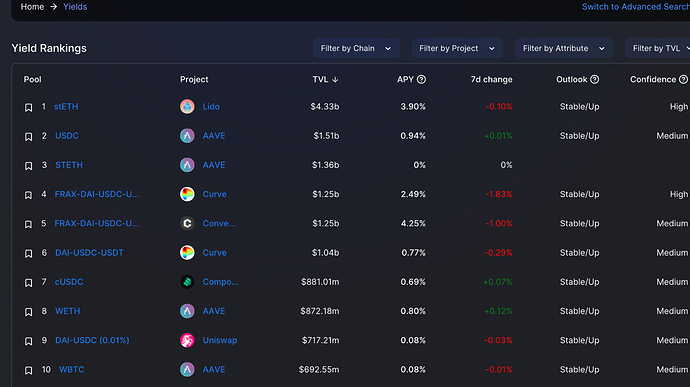Ever since i heard yield described as paying for the opportunity cost of another’s funds, I’ve thought that yield sounded like a ponzi scheme (Andrey pointed this out indirectly when he noticed that the first thing crypto developers try to do in their escape of traditional finance is rent-seek), but I now think that the Ponzi scheme is acceptable if its growth rate is manageable, e.g. if the rate of growth of the ponzi resources is slightly underneath the rate of growth of GDP or population or … etc, i.e. the ponzi output value > ponzi input value. Unfortunately, growth rates like those can vary quite widely just by taking a different frame of reference (e.g. population of a country versus that of just a county)…
my input to this discussion is that any yield hacking strategy might offer more value than it removes from the system when it is applied in a context of all rational agents pursuing such a strategy, i.e. a personal-turned-crowd strategy that depletes resources is not a sustainable yield-hacking strategy and as such may be safely allowed only by subpopulations (hopefully not any “elite”!); some subpopulations are more defensible, e.g. yield-hacking using personal resources, and some are less so, e.g. yield-hacking using resources siphoned from other communities without their consent.
very idealistic, i know (maybe very poorly explained too? i hope not, but am willing to discuss!), but i’m more about ensuring opportunities that cost too much for most people are not assumed to be better.

 you will save tons using a layer 2. Optimisim is a layer 2 that is new and inexpensive. But if the yields must be earned on eth and I had time, buying ampleforth for $.80 or less and waiting for a rebalance closer to a dollar is an easy one. The price fluctuations could possibly be used as a hedge against more volatile assets…so you could have a strategy consisting of three to five tokens (a mix of small, medium, and large caps) and buy Ampleforth when its reasonably lower than a dollar wait for a price increase and then swap that Ampleforth into whichever is the worst performing asset of the three to five tokens you chose earlier. If you made good picks on the tokens chances are it will rebound and yield some profits. Then just keep buying the worst performing token of the five until Ample drops again and repeat the process. It could take some time but it could work and you might even be able to program a bot to do it.
you will save tons using a layer 2. Optimisim is a layer 2 that is new and inexpensive. But if the yields must be earned on eth and I had time, buying ampleforth for $.80 or less and waiting for a rebalance closer to a dollar is an easy one. The price fluctuations could possibly be used as a hedge against more volatile assets…so you could have a strategy consisting of three to five tokens (a mix of small, medium, and large caps) and buy Ampleforth when its reasonably lower than a dollar wait for a price increase and then swap that Ampleforth into whichever is the worst performing asset of the three to five tokens you chose earlier. If you made good picks on the tokens chances are it will rebound and yield some profits. Then just keep buying the worst performing token of the five until Ample drops again and repeat the process. It could take some time but it could work and you might even be able to program a bot to do it.





